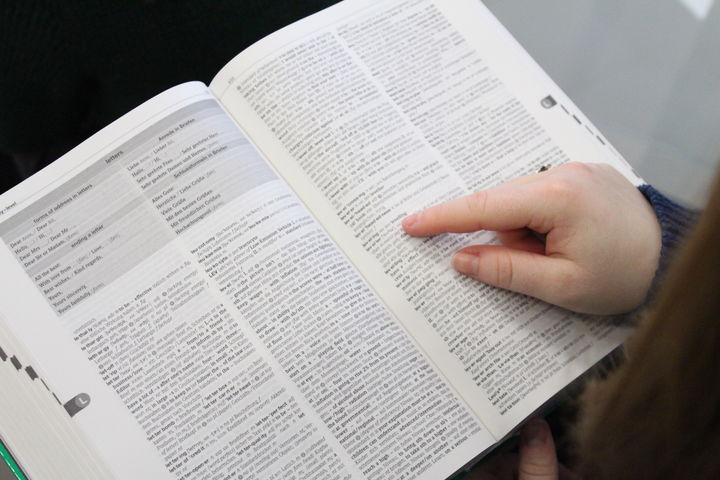Teaching
English studies at the University of Mannheim
Dear current and prospective students,
On the following pages, you may find information about courses and seminars offered by the Department of English for your bachelor, master and doctoral studies. Furthermore, you may find information concerning language certificates and letters of reference as well as prerequisites and learning content.
Prerequisites and Learning Content
What helps you have the best possible studying experience in our department?
For a successful and personally valuable course of studies at the department of English it can be helpful to reflect about your personal skills and preferences and how they might benefit you in your studies. Some of the skills and characteristics we value in our students include:
- Very high proficiency in written and spoken English and the willingness to improve continuously
- Inclination to investigate and research new subjects and curiosity about new topics and theories in both linguistics and literature
- An inquiring mind to help you explore new topics and acquire knowledge independently
- Perseverance to keep going when the going gets tough with more complex topics, theories, and texts
- The willingness to think “out of the box” and the ability to navigate different perspectives and approaches as most of the time it won't be about right or wrong
- Courage to apply your newly acquired knowledge and skills creatively and critically to new contexts instead of only memorizing facts and canonical analyses
- Passion for discourse and engagement in learning and researching together with fellow students and staff
What can you learn at the department of English?
Some of the key competencies you can develop during your studies:
- Develop and grow a strong basis of knowledge in literature and cultural studies of English-speaking countries
- Develop and grow a strong basis of knowledge in English linguistics including language structure and usage as well as general linguistics
- Apply linguistic knowledge in diverse fields of research like language acquisition, multilingualism, language variation and change, language marketing and communications and many more
- Learn how the English language developed through centuries as well as why and how all natrual languages keep changing and apply this knowledge to the analysis of historical and modern texts
- Develop advanced analytical skills for critically interpreting and discussing English-language literary texts and cultural artefacts (text, film, graphic novels, video games, comics, and music) in their respective historical, economic, political and social contexts
- Develop the skills to independently investigate selected topics using current literary and linguistic theories and applying appropriate linguistic and literary methods
- Develop a graps of the links between literature studies, cultural studies, and linguistics and reflect the interplay of their respective perspectives on language
- Draw connections between theories, (literary) texts and your own life and environment to open up new perspectives both for life and research
- Develop your written and spoken language competence and communicative repertoire towards a near-native level in constant interaction with teaching staff and fellow students so that you have the skills and tools to appropriately communicate in a range of professional situations using English
Further information for students
Letters of Recommendation
Language Certificates
Language certificates, especially for applications for semesters abroad, are issued exclusively by our lecturers. Ideally, you should contact a lecturer who knows you already.
Commercial language tests are not offered by the Department of English. Please contact e.g. Studium Generale.
Learning Agreements
Information on learning agreements can be found on the deanery's website.




